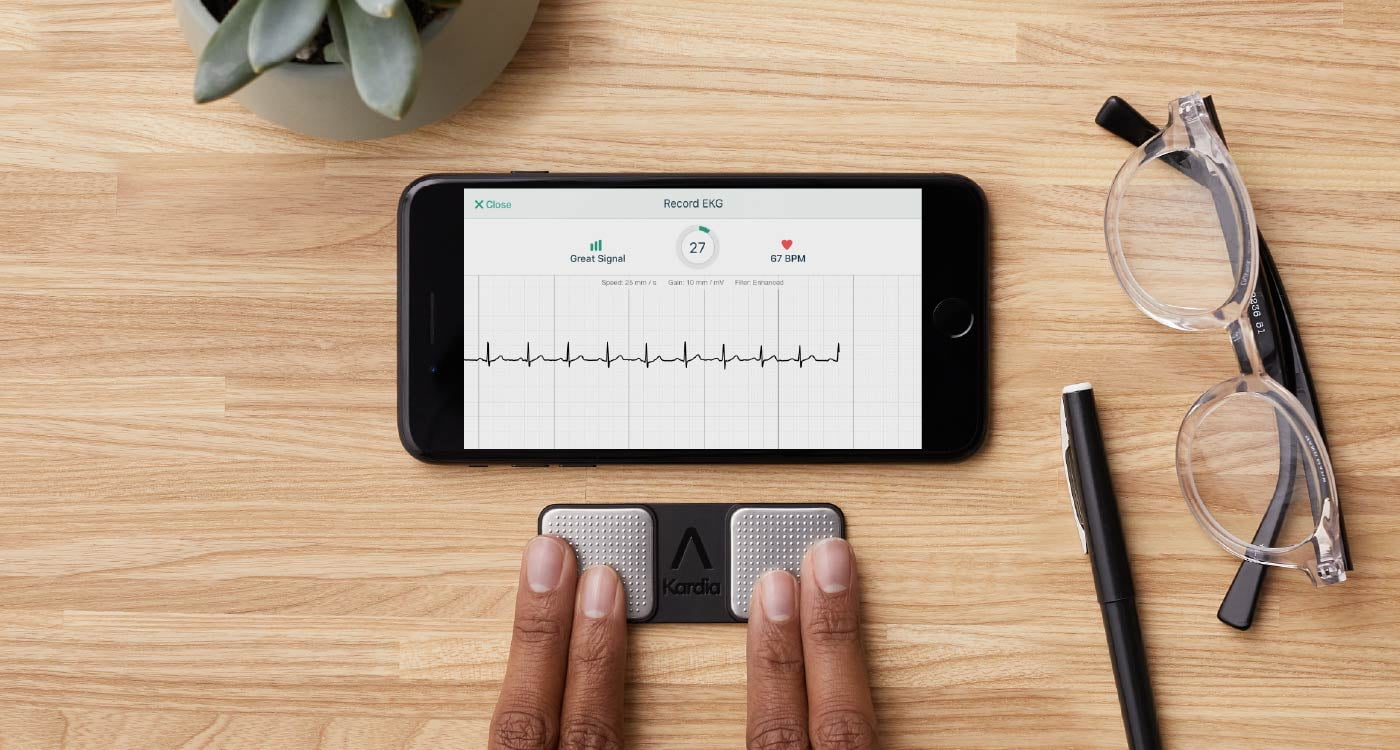Atrial fibrillation (AFib) is an irregular heartbeat that occurs when the upper chambers of your heart beat out of coordination with the lower chambers, which causes your heart to beat either too slowly or too quickly. It is the most common heart arrhythmia, affecting nearly 3 million people in the US.
People with AFib are 5 times more likely to have a stroke and may also develop blood clots, heart failure, and other heart-related complications. If you experience AFib, it may feel like your heart is fluttering or skipping a beat. AFib can be detected on an electrocardiogram (ECG), which records the electrical activity of your heart.

How to know if you have AFib
Common symptoms of AFib may include heart palpitations, shortness of breath, extreme fatigue, or feeling dizzy or lightheaded. However, some people may not notice any symptoms, which makes AFib hard to detect outside the doctor’s office or without a personal ECG like KardiaMobile.
Because AFib can be hard to detect, and symptoms aren’t always predictable or noticeable, it’s helpful to have a personal ECG device that allows you to check in on your heart whenever you feel a symptom. Devices like KardiaMobile can record medical-grade ECGs and detect AFib from home, making it easy and convenient to manage your heart health. KardiaMobile is FDA-cleared to detect AFib and other common arrhythmias, including premature ventricular contractions (PVCs), Tachycardia, Bradycardia, and more. You can record unlimited ECGs, whether you’re experiencing a symptom or just want to check in on your heart.

Managing AFib
Early detection and management of AFib is not only important for your heart health, but your overall health as well. Atrial fibrillation is commonly treated and managed in these ways:
Medication
People with AFib may be prescribed medication to help control the heart’s rhythm and rate.
Surgery
In some cases, an interventional procedure called an ablation may be performed to prevent further atrial fibrillation.
Lifestyle
A heart-healthy diet, frequent exercise, and reduced stress play important roles in the management of AFib.
KardiaMobile
KardiaMobile can help with the early detection of AFib, which may prevent serious heart complications.
Risk factors of AFib
Your risk of developing atrial fibrillation can be affected by several different factors. Common risk factors include:
Hypertension, or high blood pressure, accounts for 1 in 5 cases of AFib.
Smoking may increase your risk of AFib because it is associated with elevated blood pressure and heart rate.
Sedentary lifestyle. Lack of exercise and routine movement may contribute to increased risk for developing AFib.
Heart disease—such as congestive heart failure, congenital heart disease, coronary artery disease, or history of a heart attack—may increase your risk of AFib.
Age. The older you get, the more likely you are to develop AFib.
Family history. Your family history may contribute to your risk for developing AFib.
Talk to your doctor about AFib
AFib is a serious heart condition and a leading cause of stroke. But with early detection and proper management, it can be treated. When it comes to your heart health, your doctor is your best resource. Talk to them about any symptoms you may be experiencing and then learn more about how KardiaMobile can help you stay on top of your heart health from home.
Sources:

